Evaluating Country Programmes - OECD Online Bookshop
Evaluating Country Programmes - OECD Online Bookshop
Evaluating Country Programmes - OECD Online Bookshop
Create successful ePaper yourself
Turn your PDF publications into a flip-book with our unique Google optimized e-Paper software.
<strong>Evaluating</strong> <strong>Country</strong> <strong>Programmes</strong><br />
116<br />
The aid programme’s main achievements were the increase in production of<br />
state enterprises and provision of better public institution services through the<br />
supply of technologically advanced commodities and training of large numbers of<br />
staff. However, commodity supplies and technical training did little to improve government<br />
institutional functioning, mainly because the public sector’s structural<br />
problems could not be addressed effectively at the level of individual projects.<br />
Results were best in cases where public agencies oriented their activities<br />
towards clients’ demand and had sufficient financial autonomy to raise additional<br />
revenue, enabling them to offer better employment conditions, to finance other<br />
operations, and to cover main tenancy and reinvestment costs. The main causes for<br />
lack of success in the Netherlands’ project aid were its deficiencies in project preparation<br />
and inefficiency within public institutions.<br />
Initially, the sustainability of project aid achievements was low but improved<br />
as a result of the recent acceleration of Egypt’s economic reform policy and<br />
renewed economic growth. The principal factors that enhanced sustainability were<br />
a favourable government policy and, for public institutions, their orientation<br />
towards client demand and their growing degree of financial autonomy.<br />
The Netherlands’ development aid had little influence on Egyptian policies.<br />
This is because of the relatively small share of Dutch aid in the total volume provided.<br />
Also, its dispersal over several sectors and its focus on a large number of projects<br />
which had little relation to one another made it less obvious for the Netherlands to<br />
participate intensively in policy discussions. Experiences in two main sectors are<br />
illustrative in this respect. The policy framework for the development of Egypt’s<br />
water management and drainage sector was established under USAID and World<br />
Bank covenants. These two donors contributed almost two-thirds of external<br />
support to the sector. Likewise, fundamental sector reforms in drinking water and<br />
sanitation were the outcome of a policy dialogue between Egypt and USAID, USAID<br />
being by far the main donor of the sector. The various activities supported by the<br />
Netherlands in both sectors were in line with these Egyptian policies, without the<br />
Netherlands being able, or wanting, to influence them. However, experiences<br />
gained in projects supported by the Netherlands resulted in insights that facilitated<br />
the implementation of policies in the two sectors.<br />
Key workshop themes<br />
The CPE Egypt provides some relevant experiences with regard to the key<br />
workshop themes. These are briefly dealt with below under the following headings:<br />
Methodology, Partnership in Evaluation, and Effects on the Dutch Aid Programme.<br />
<strong>OECD</strong> 1999





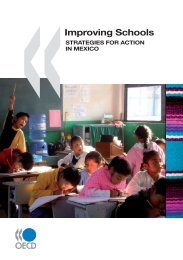
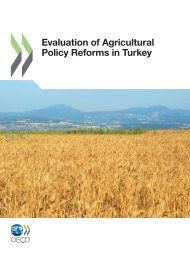
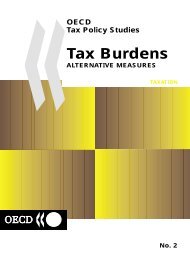
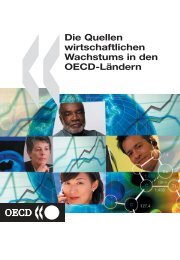
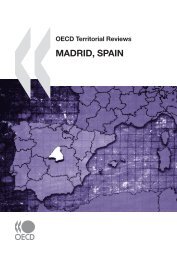


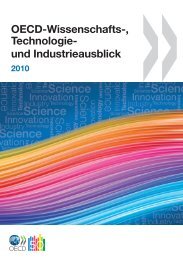
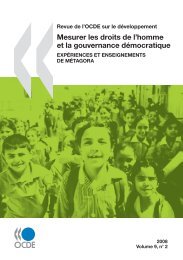
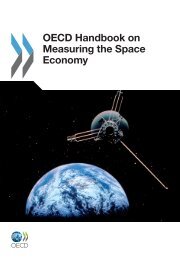
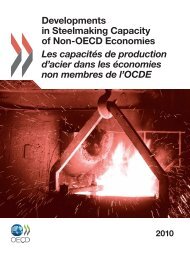
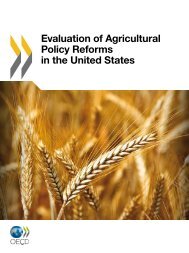
![CQE=U]^\]Z: KAZAKHSTAN - OECD Online Bookshop](https://img.yumpu.com/3915768/1/190x253/cqeuz-kazakhstan-oecd-online-bookshop.jpg?quality=85)